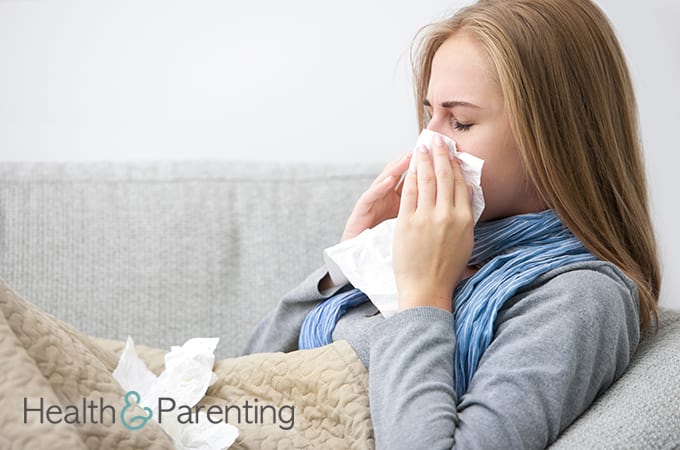According to the Centers for Disease Control and Prevention (CDC) in the United States, pregnant women are more susceptible to the flu and other illnesses than non-pregnant women of the same age. The reason is simple. You are making a baby, which means not only are all of your bodily systems working hard, but your immune system is suppressed causing your own personal immunity and defenses to be weakened. Even worse is the fact that the flu can pose serious health risks and complications (not to mention 100 times the discomfort) during pregnancy.
Additionally, severe flu symptoms and complications which develop more easily in pregnant women can affect the growing baby, as well. This is one reason that many obstetricians recommend pregnant women, or those planning to get pregnant during flu season, get inoculated with the flu vaccine. In most cases, even if you do contract the flu during pregnancy after being vaccinated, the CDC suggests that your chances of developing life threatening complications to you or your baby are reduced by more than 50 percent.
One reason many pregnant women avoid getting a flu shot is because they are afraid that the vaccination will harm their babies. According to the CDC, a small amount of mercury (called thimerosal) is a common preservative in multidose vaccines. Despite concerns, thimerosal-containing vaccines have NOT been shown to cause autism or attention deficit hyperactivity disorder. Additionally, if you have concerns about mercury, ask your doctor about a preservative-free vaccine. All routine vaccines are also available without added thimerosal. The CDC says pregnant women may get flu shots either with or without thimerosal.
If you do get the flu while you are pregnant, it is important to let your health care provider know as soon as possible. The American Congress of Obstetricians and Gynecologists suggests pregnant women get treated within 48 hours of the first symptoms of the flu in order to reduce the chances of developing serious complications. Also, remember that many over-the-counter cold and flu remedies are not safe for pregnant women, and you need to contact your health care provider to make sure you are taking medications that will not harm your unborn baby.
If you are pregnant, try to stay away from people who you know are sick. Wash your hands often, and keep hand sanitizer nearby. There is no need to stay indoors and away from others out of fear of getting sick, however being proactive and using common sense can help you to remain healthy during your pregnancy.
Written By Stef, Mom of 4 @Momspirational
This information is not intended to replace the advice of a trained medical doctor. Health & Parenting Ltd disclaims any liability for the decisions you make based on this information, which is provided to you on a general information basis only and not as a substitute for personalized medical advice. All contents copyright © Health & Parenting Ltd 2018. All rights reserved.










